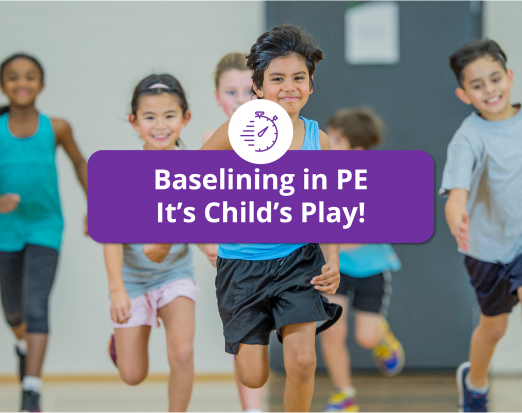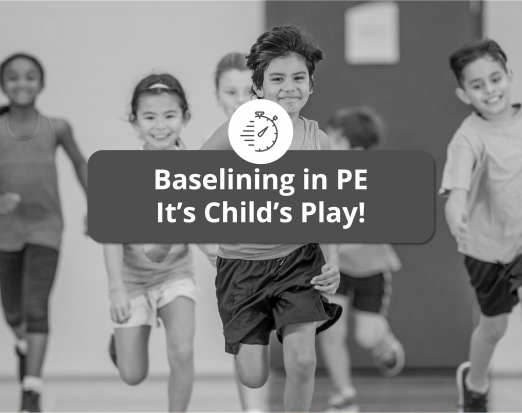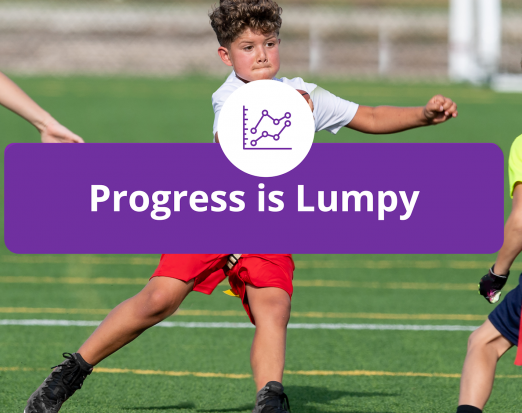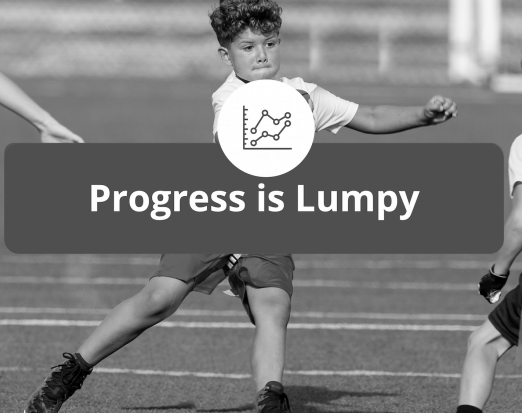Psychology of Champions – Understanding Your Emotions

There is a quote by Brian Tracey that states;
“The hardest part of any important task is getting started on it in the first place. Once you actually begin work on a valuable task, you seem to be naturally motivated to continue.”
This, we are sure, would have been the feelings associated with returning to school for many. When lockdown was announced in the UK on 23rd March 2020, it meant that activities that we took for granted such as going to school, work, the gym or to our sports clubs where removed from our lives… it felt very strange.
Although the increased isolation was tough, the phrase “the new normal” was quickly adapted by the nation, and as you would expect, many adapted, so much so, that returning to these activities has proven tough, and has been a cause of anxiety and stress for some.
This got us thinking about the psychology around starting new tasks, such as returning to school, or a new training programme and qualities are needed to maintain motivation to continue to work or train; the best of the best can train their whole lives for success in their sport, there must be a winning mentality that supports this success.
We have identified the 5 C’s, that all champions possess, and encourage you to reflect on how many of them you use effectively.
The 5C’s
The 5C’s are a range of psychological and social skills that all great champions seem to possess, and it has lead to organisations such as they Football Association developing these skills in training sessions for coaches and players alike.
We have developed Young Champions with this in mind, and our holistic programme will aid in the development of these values, but more importantly, through self-reflection we will highlight these with your children so that they are aware of them and can master them…. But what are they?
Commitment – Being dedicated to a cause or activity:
Our programme focuses on:
- Reward players efforts through a star system.
- Continually monitoring performance and displaying progress.
- Support with goal setting tasks.
- Encourage self-reflection.
Through these methods our Young Champions will take ownership of their own learning and as such will adopt an unconditionally strong work ethic.
Confidence – The belief in yourself:
We ensure that our Young Champions have individual programmes to ensure that they progressively build towards achieving their personal bests. We also clearly explain the true journey of progress ensuring that our Young Champions feel safe trying new things and are not afraid to make mistakes, creating a confident, driven athlete.
Control – The ability to restrain actions or emotions:
By focusing on the up’s and down’s of training players can embrace the positive and negative feelings. As stated with confidence, mistakes and setbacks will happen, but by taking ownership of their own progression, children will find controlling emotions will become second nature, they will develop resilience skills which are essential. Every athlete suffers setbacks, there is a famous Michael Jordan quote:
“I’ve missed more than 9000 shots in my career. I’ve lost almost 300 games. 26 times, I’ve been trusted to take the game-winning shot and missed. I’ve failed over and over again in my life. And that is why I succeed”
This is from the greatest basketballer of all time, he had an ability to bounce-back after a setback.
Concentration – Focusing all your attention:
Focusing all your attention, on the right things, at the right time. Our expert coaches and movement specialists provide expert guidance to support your child to ignore the distractions and to focus on the task at hand.
Communication – Exchange of information:
This is massively important if you want to reach the very top (in all areas of your life), we encourage children to play together, to reflect on their performance and to share their goals with others, including their coaches or teachers, by developing communication skills, it allows clearer information to be spoken, or understood which is a huge part of their development. It also makes individuals coachable, those children that are willing to listen, and take on information, will be the ones to develop their skills.

What about Nerve’s?
Control, as we spoke about earlier, is a little more complex than just being able to control emotions and bounce-back. Nerves are part of everyday life, including sport. Some athletes can control these nerves, and use them as a motivator to succeed, whereas others may crumble under the pressure.
When we think of nerves, we must consider stress, anxiety and arousal.
We must start by saying that Stress is not always a bad thing, and stress itself is simply the body response to a given situation or changing environment. It is believed that there are two types of stress. Eustress (good stress) and Distress (bad stress) and they affect us in different ways.
Eustress can;
- Motivate
- Excite
- Improve Performance
It is often short term, but is usually the response of something new, but positive, in the “real world” this could be a result of gaining a promotion at work, and then feeling excited and nervous when it’s time to start the new position. A sporting example could be getting the opportunity to take the match winning penalty… if this is something that you have always wanted to do. It’s a big responsibility, but a great opportunity.
Let’s use the same example, there is an opportunity to take the match winning penalty, but you really, really, really don’t want to take it, but your coach makes you. This would cause distress.
Distress can;
- Feel unpleasant
- Decrease performance levels
- Be short or long term
- Can lead to further cognitive and physical issues.
- Can cause anxiety and concern
Understanding the types of stress can help you control your emotions during performance, but also understanding what is distressing to you can help put in plans to overcome them. Using that same example, you might not want to take the penalty because your technique isn’t quite right, so we can practice this, their maybe further remedies such as visualisation and breathing techniques to support, but it is important that we don’t push Young Champions to constant states of distress and anxiety.
Anxiety is usually a negative emotional state, that causes nervousness, worry and apprehension. It is believed that there are two types of Anxiety, State Anxiety and Trait Anxiety.
Trait Anxiety is a personality trait. The individual might display a nervous disposition in most areas of their lives. State Anxiety is different, this is often referred to as changing moods. Essentially it is where different environments or situations can make individuals feel more, or less anxious. Continuing with our penalty taker example, our player might be very confident in most areas of the game, passing, dribbling, tackling etc. But in front of goal, and specifically with penalties it causes Distress and Anxiety.
All of this can be linked back to arousal. Arousal is a combination of Psychological and Physical responses to Stress and Anxiety and can intensify motivation. Controlling arousal levels is important, continuing our penalty taker theme:
- Not Caring about the Penalty (No Arousal) = Decreased Performance/Missed Penalty
- Full Awareness and Concentration (Optimum Arousal) = Increased Performance/Goal
- Caring too much, letting nerves get to you (Over Arousal) = Decreased Performance/ Missed Penalty
There are many techniques to support with dealing with and controlling stress, anxiety and arousal. As briefly mentioned, breathing exercises, visualisation and goal setting can help, and we will support all our young champions with these tools.
The first step along the way, is understanding these elements and how they may impact on our performance, and our day to day life.
Leadership
Finally, we believe that there is a by-product to the psychology of champions, and that is the development of leadership skills as part of that constant pursuit of greatness. Encouraging our Young Champions to take ownership of their own development will only support this further.
Want to become a better athlete?
Our Sports Apps below can help
The Total Footballer App, is designed to support players of all ages and skill levels. It is the only Football Coaching App that integrates 5 phases of skill acquisition and long-term athletic development, meaning that all sessions and activities are designed to meet your current skill level whether you are just starting out, or are an experienced academy player. All our turning sessions are designed by UEFA Qualified Coaches and are supported by further sessions in:
Ensuring that players aren’t just practicing but are practicing with the highest quality. We also have a range of physical development practices, healthy lifestyle sessions, and psychological tips to help develop the total footballer. If your child needs help developing their turning, or any part of their game, you can try the app for free now!






